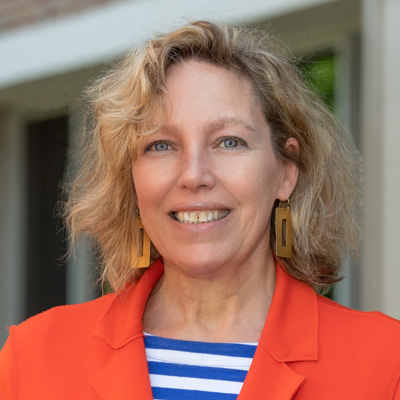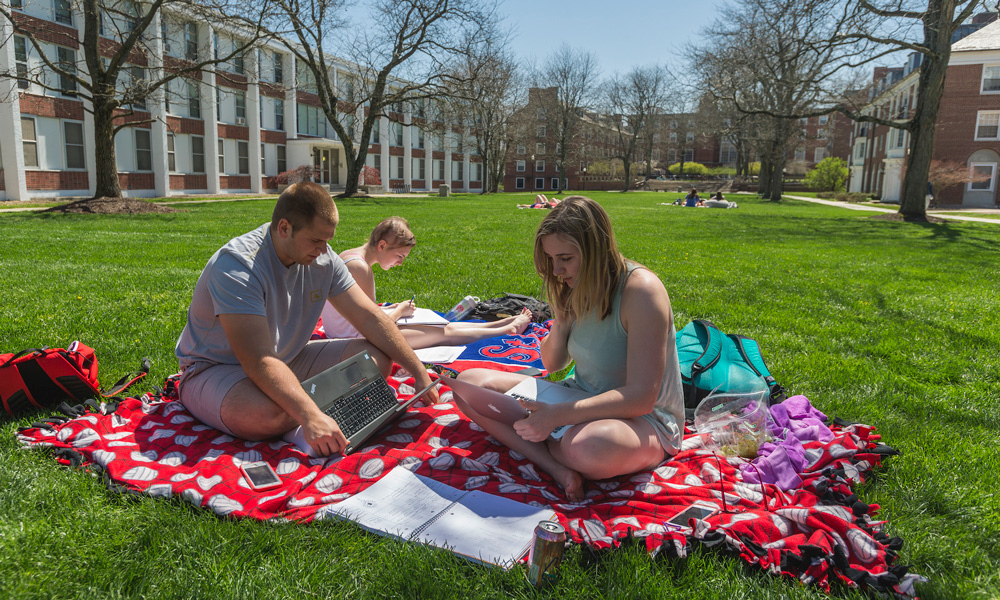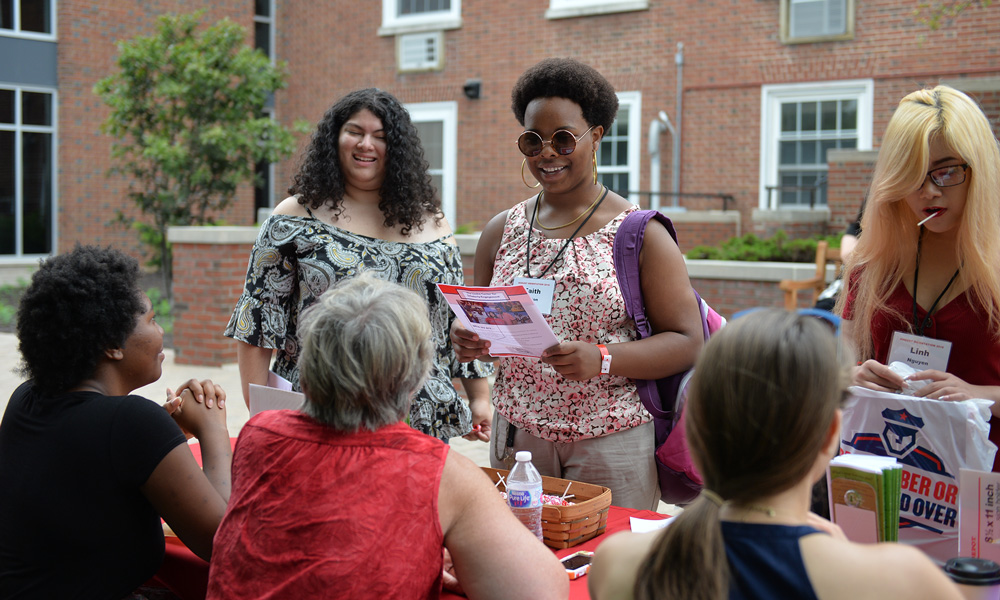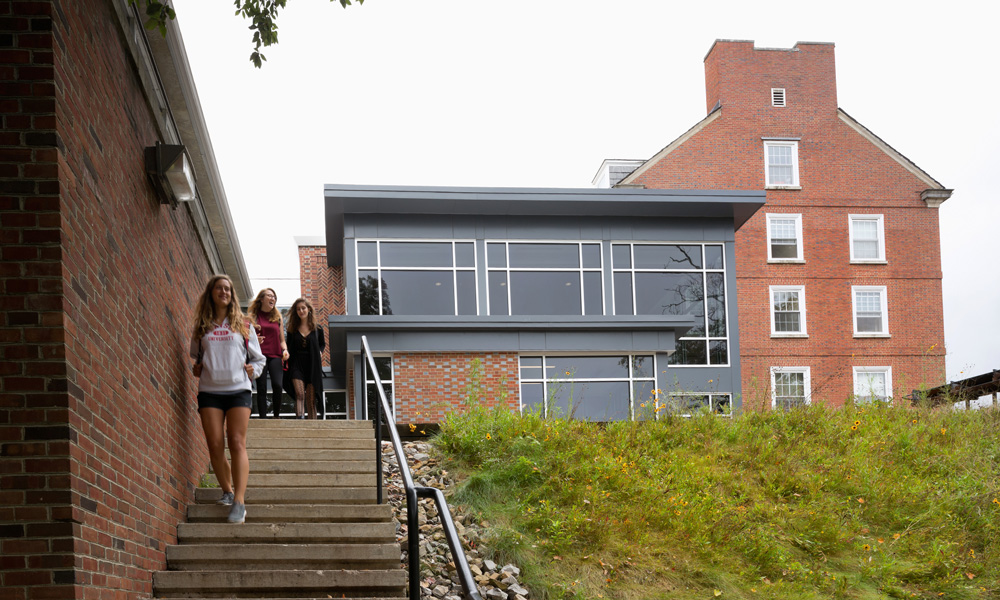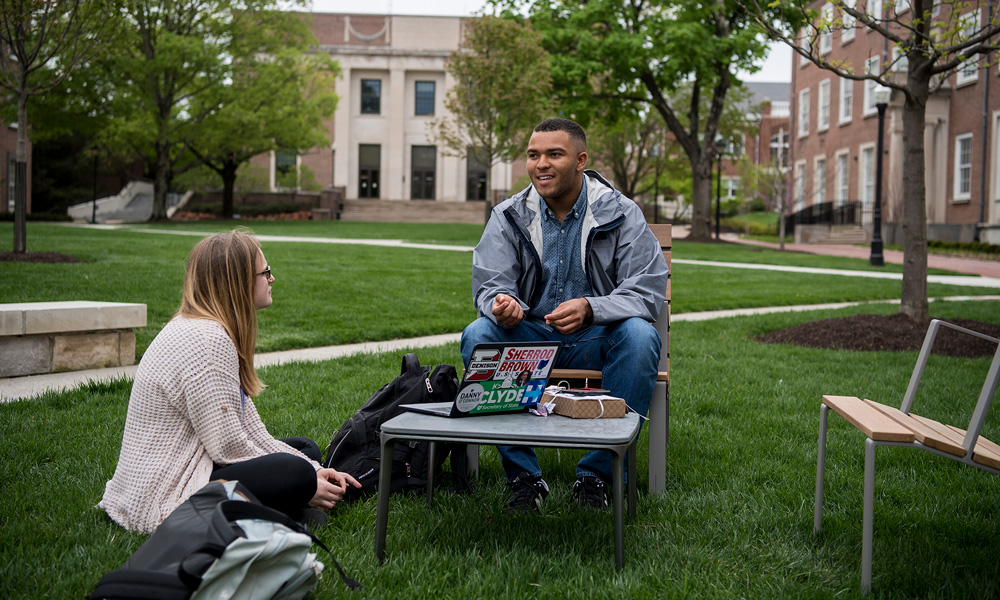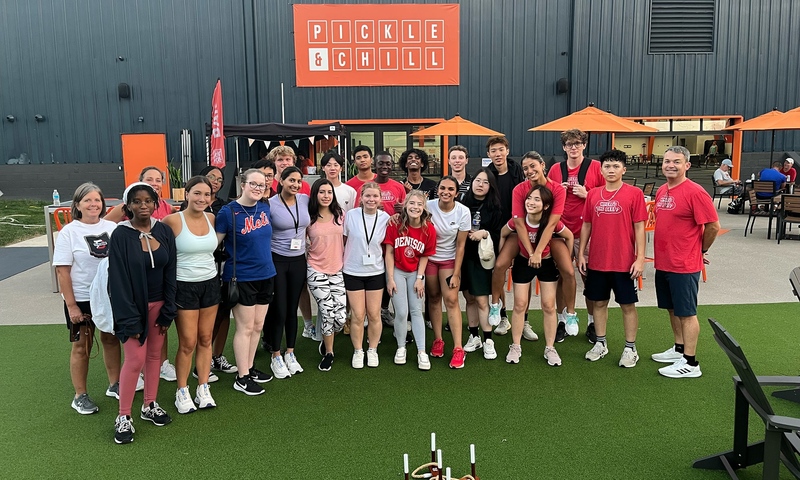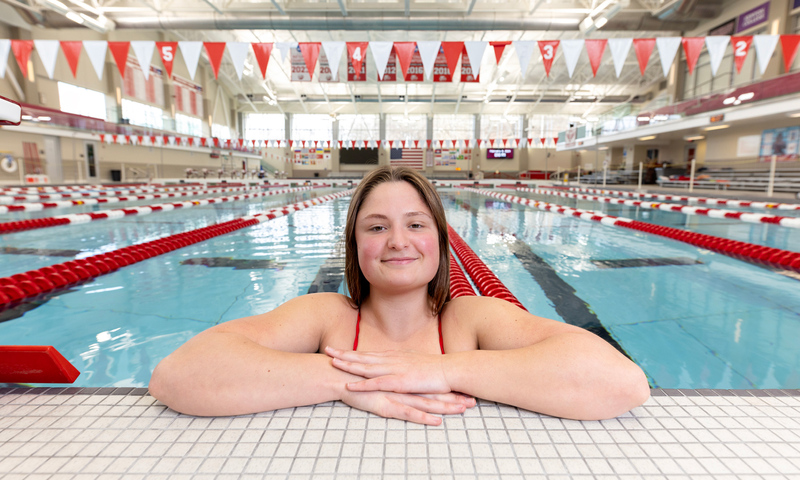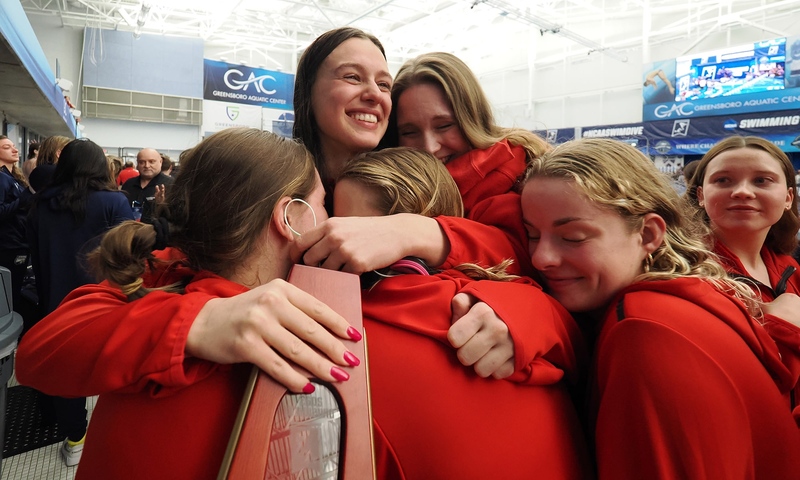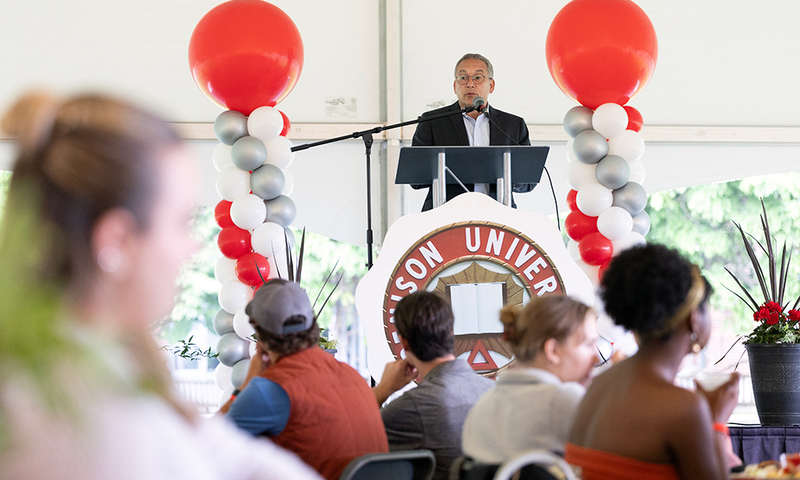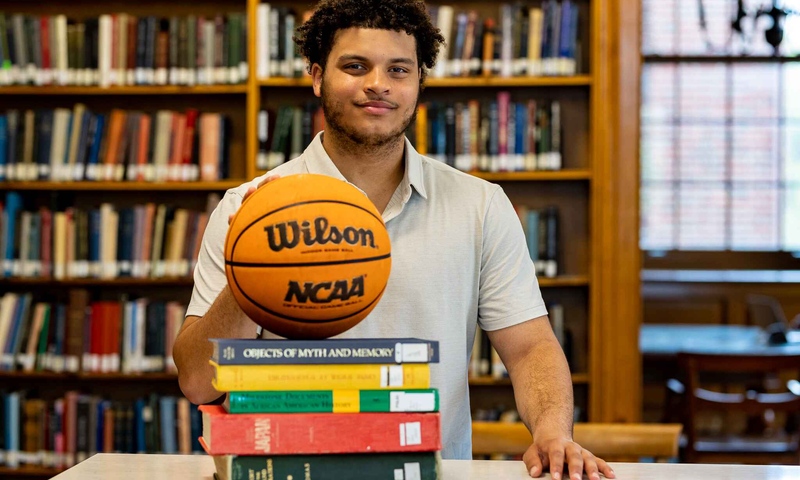Denison’s fully residential campus is home to our students for four years. As they live here, students foster life skills, engage through difference, and gain self-awareness. Denison University President Adam Weinberg notes, “A residential campus is a place for students to acquire and practice liberal arts skills and attributes. This has always been a hallmark of a Denison education.”
The college recently undertook an extensive assessment of its housing options and goals, and working with national consulting firm Brailsford and Dunlavey, created a comprehensive master housing plan that is responsive to students’ concerns and needs, fostering community, privacy, and inclusivity in shared spaces. The assessment included strategic work by Denison’s RED Corps, a student group specifically trained in design-thinking skills. The RED Corps surveyed and evaluated student responses. This information, along with evidence-based best practices, was molded into the foundation of the master plan.
The housing master plan is aligned with Denison’s strategic objectives. While managing costs, the plan ensures that all students have access to clean, modern housing at a reasonable price.
Housing
Housing is, of course, the main focus of the master plan. All residence halls are undergoing renovations and updates. Some of these are quite significant, including the restructuring of spaces, the addition of new bathrooms, and reconfiguration of kitchens. Others focus on new design elements, fixtures, flooring, and paint, to give spaces a clean, modern feel. Improved lounge spaces encourage and support more community building in residence halls. The plan also allows for improved accessibility and meets the needs of a more diverse student body, adding single-occupant all-gender restrooms and ramps in residence hall lounges. By 2022, every residence hall will have undergone renovations, refreshes, or updates.
Another goal of the master plan is to offer housing that provides graduated levels of autonomy as students progress through their academic career. Various housing options support students’ development continuum, acknowledging that first-year students have very different housing needs than seniors, for example. In addition, students have expressed they prefer to live in class cohorts, especially in their first and final years. Therefore, a strong effort has been made to provide student housing by class. Significant updates have been made to Beaver, Sawyer and Shaw, as well as Pratt and Brown, including new flooring, lighting, furniture, and paint as well as restroom and lounge improvements. Other buildings have undergone a first round of improvements while they await fuller renovations in the next couple of years.
Evidence indicates that first-year students thrive when they are located within their classmates, as they create community and form friendships through shared experiences. Beginning 2020, first-year students will be housed in Crawford Hall on the East Quad and Shorney and Smith halls on the West Quad. Placing a large number of first-year students in close proximity provides opportunities for them to form relationships within their class, while sharing a quad with older students fosters integration into the Denison community. This provides an environment that strengthens their college experience and supports their success.
Also, beginning in Fall 2020, every Denison senior who prefers apartment-style housing will be able to enjoy that amenity. The opening of Silverstein Hall completes our senior apartment-style housing offerings. Apartment-style housing provides living spaces where seniors may practice living as they might post-graduation.
“A residential campus is a place for students to acquire and practice liberal arts skills and attributes. This has always been a hallmark of a Denison education.”
Sophomores and juniors will have housing choices on the east, north, south, and west quads. Housing options will include double and triple occupancy rooms, as well as four- and six-person suites.
Each residence hall has kitchen facilities and study/recreational lounge areas. Laundry facilities are located in all residence halls. Responding to long-expressed student interest, beginning Fall 2020, laundry fees will be included in room costs, meaning no coins or cards will be needed.
Social Spaces
Denison students have plenty of options for socializing. These include lounges in the residence halls, the Nest in Slayter Union, the Bandersnatch in Huffman Hall, and Lamson Lodge with its outdoor patio and volleyball pit. In fall 2019, Denison also opened Moon Hall, a new, large social space with ability to accommodate a range of activities. Moon Hall can be used as one large space to accomodate big groups or subdivided into smaller gathering spaces. Three outdoor patios provide a sense of community and allow for increased social interaction. Denison students played an active role in the building’s design, and Moon Hall was named by Denison students via an all-campus vote.
Wellness
Students in residence halls are often living away from home for the first time. This creates a unique opportunity to form good lifetime habits for healthy living.
Vice President Kennedy notes, “Life habits are crucial, especially allocating time for relaxation and sleep; committing to nutrition and exercise; and avoiding the traps of technology by putting our phones down, unplugging from social media and spending more face-to-face time with friends. Even if you stay healthy, you will have to manage stresses and disappointments. We’re creating opportunities to build the emotional agility that our students can use over their lifetimes.”
Denison’s Center for Wellness offers an array of programs that can help students establish healthy habits that support them at Denison and after graduation. The college has engaged a mindfulness coordinator to bring the benefits of mindfulness — which include improved resilience and health, as well as an enhanced ability to manage stress and anxiety. Students and staff can bring programs in good sleep habits, nutrition, yoga, fitness and more right to their doorstep.
Taking even more robust action towards well-being, the college will break ground on a new wellness center in Fall 2020. The new health and wellness center will be relocated from the edge of a residential quad to the center of campus, emphasizing the importance of student well-being. Serving as the hub of wellness, the new building will incorporate medical and counseling facilities as well as a teaching kitchen, movement studio, and spaces for other wellness activities. The building will establish a new standard of integrated, holistic health and wellness for residential colleges, moving beyond the treatment of illness and injury to proactively promote wellness.
Learning opportunities in residence halls
President Weinberg notes, “Residence halls are design studios for acquiring the skills for democratic living.” With that in mind, the Residential Communities and Housing department in Student Development is focused on the cultivation of community within the residence halls, through leadership development, civic engagement, creative problem solving and the embrace of diversity as core values.
Residential Communities and Housing is a national leader in its use of the “Public Narrative” model of citizen-professionalism. This supports the work across the college to encourage civic engagement and moral agency. The model, expanded most clearly through the work of Harry Boyte, emphasizes storytelling and connections between the individual, community, and action — the stories of self, us, and now. The Public Narrative model employs several tools through which students build rapport, dialogue, and solutions toward action. Denison includes those practices and tools in the work of professional and student staff in Residential Communities and Housing.
In addition, the college employs some traditional practices to achieve its vision of community, including hall and area-wide programming, engaging campus partners in hall efforts, and supporting safety through incident response and reporting. Programming is thoughtfully connected to the needs and interests of residents, with consideration for timely topics that best support specific populations.
Community coordinators (CC) are professional live-in staff members who work with students community advisors (CA) to ensure that this happens in each community. For example, a CA for first-year students hosted an “Adulting 101” program early in the semester to help students learn the basics of interdependent living at college – including a laundry tutorial. For sophomore students, residential communities and housing co-sponsored a Sophomore Resource Fair to bring together resources most relevant to students in their second year. In the senior communities, programming has addressed cooking and menu planning, budgeting for post-grad living, and more, all designed to meet students’ needs with timely education.
Parking
Denison has parking spaces capable of accommodating all student vehicles. Parking for first-year students is in the Ebaugh parking lot, located near the Mitchell Center. Returning students park more proximally to their residence halls. Parking also is available on north and south quads and as well as adjacent to Silverstein Hall.
